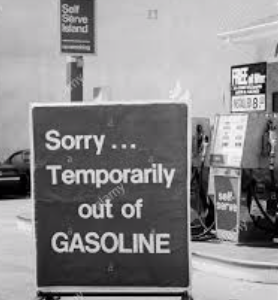… is from page 105 of Michael Strain’s important 2020 book, The American Dream Is Not Dead (But Populism Could Kill It):
The common experience over the past several decades has been that jobs are readily available for those who want them, and for quality of life to improve. The populist argument that typical workers have been at a standstill for decades – victims of an elite that has “rigged the system” against them to help itself, or of immigrants – is incorrect.
DBx: Yes.
As I said in my Pairagraph debate with Branko Milanović, because I was born in 1958 and raised in the suburbs of New Orleans – where my father, after quitting his job as a bus driver, worked as a pipefitter in a shipyard – I’m a time-traveler from a thoroughly working-class American family of the 1970s. I remember that decade well. And while (of course) one’s personal experiences and recollections are hardly sufficient evidence to establish the validity of any proposition about economic changes for a country as a whole, such experiences and recollections aren’t wholly without information-content.
During my decades-long journey from the 1970s to 2020 I had much time to study the historical record – to examine the data, such as those that appear throughout Michael Strain’s book. The data powerfully confirm what my personal experience tells me: Anyone who asserts that ordinary Americans today are no, or only modestly, materially better off than were ordinary Americans in the 1970s or 1980s is mistaken. Deeply mistaken.
Nostalgia for, and misty-eyed myths about, a long-gone past are understandable. We humans are prone to such lazy indulgences. But I guarantee that if any of you ordinary Americans were suddenly projected back to, say, 1975 and found yourself living as ordinary Americans then lived, you’d feel desperately deprived. The reason is that, by the standards of today, you would be desperately deprived.
No cell phones, let alone smartphones. “Long-distance” charges for telephone calls to and from outside of the local area – calls that were made, in many cases, with rotary dials. No caller ID. Very few Americans had access to call-waiting. (You young’uns, look this latter up; you can use Google, which in 1975 was still more than 20 years in the future.) Costly air travel that was less safe than is air travel today. No personal computers. No home printers. No internet. No e-mail. No Bluetooth. No Zoom or Skype. No YouTube. No blogs. Of course no wi-fi. No podcasts. No PowerPoint. No e-books. No texting. No making reservations at restaurants or hotels on-line. No satellite radio. No on-line shopping or on-line banking. No direct deposit. No Venmo. No Yelp. No debit cards. No overnight delivery. No Uber or Lyft or Airbnb. Coffee choices bad and few. Beer choices bad and few. Wine choices poor and few. Spirits choices fewer than today. Scratchy polyester clothing. No Keurig machines and brew-pods. Supermarket choices pathetic by the standards of today. Only film cameras, most of which were of poor quality. Home movies were silent. Automobiles were far less reliable and safe than are automobiles today. No GPS navigation. No back-up cameras. No keyless entry. Food more expensive. Fresh-cut flowers a relative luxury. Microwave ovens a relative luxury. No Forever stamps. Contact lenses so pricey that wearers often bought insurance on them. No Lasik surgery. No Flonase. No MRI machines. Intraocular lenses still relatively rare, and of poorer quality than today. No Viagra. Far fewer varieties of ethnic cuisines readily available. Television repairmen making house-calls (really)! Only noisy automatic dishwashers (for ordinary Americans fortunate enough to own such a device). Vinyl records, 8-tracks, or cassette tapes – none of which permit music to stream. A half-dozen television stations at most, and viewable only in low-def. Electronic calculators still a novelty for many people. No Gore Tex. Much smaller homes (with more more people living in them).
Fuel shortages.
Life expectancy at birth was in 1975 more than nine percent lower than it is in 2020.
It’s easy and tempting to dismiss many of the above-listed features of 45 years ago as insignificant. (“No Keurig coffee pods! Really?! How insignificant! Only a materialist philistine would dare count such a triviality as relevant for a good and meaningful life!”) Forget that one unheralded output of devices such as Keurig machines is not only the physical outputs they produce, such as brewed cups of coffee, but also time saved – time that is thus freed up for other uses. It’s true that life today without any specific one of most of the countless advances since the 1970s would be only mildly less enjoyable and rich than life today actually is for ordinary Americans. But imagine life today without, say, even as little as one-third of the advances signaled in the above list. What’s your assessment of the quality of that life?
Now imagine life today with none of the advances signaled in the above list.
We time travelers from the 1970s don’t have to imagine such a life; we experienced it. We weren’t then – when Gerald Ford toiled in the Oval Office – conscious of our relative poverty, for we were relatively rich compared to Americans of only a decade or two earlier, who themselves were richer than their parents and grandparents. But were we today to be sentenced, for some heinous crime, to life in 1970s America, we would – as you would – plead desperately for mercy and a quick release from our unpleasant, dangerous, and dreary prison.



